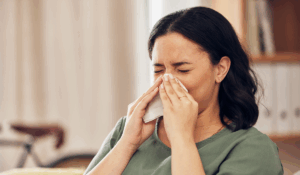As we age, our bodies and brains transform in many ways. Life is aging, but the choices we make daily can determine how we live once we reach old age. Establishing good habits isn’t so that we live longer—it’s so we live better. Let us know how older persons can stay active, independent, and satisfied over age 60.
The Importance of Healthy Tips for Older Adults
Healthy tips are the secret to preventing or managing chronic conditions like heart disease, diabetes, arthritis, and even memory loss. According to the CDC’s careful estimates, 50% of older persons have two or more chronic conditions, and almost 80% have at least one. The good news is that our daily lifestyle habits—what we eat, how we move—can improve quality of life at any age.
Establishing healthy habits isn’t a dramatic, sudden change. Gradual, steady steps create long-term payoff. Whether staying physically active or staying hydrated, these small, daily decisions are your building blocks to a healthier life.
Healthy Tips for Older Adults: Why Exercise Matters More Than Ever
Physical exercise limits the body and stimulates the mind. Regular exercise among individuals above the age of 60 improves balance, flexibility, and bone density, lessening falls, a huge problem after age 60.
At least 150 minutes weekly of moderate exercise is the World Health Organization’s guideline for adults aged 65 and older. That includes
- Walking or Jogging Lightly
- Stretching in Chairs or Yoga
- Swimming or Water Aerobics
- Light strength or resistance training
Regular physical activity also protects against heart disease, lowers high blood pressure, and lifts the mood. Don’t attempt to do too much. 10-minute walks are included too.
Eating Smart: Nutrition-Focused Healthy Tips for Older Adults

Since metabolic slowing accelerates with age, the healthy thing is to eat smart rather than reduce food intake. Eating a balanced diet promotes weight, energy, and organ function maintenance.
Focus on:
- Lean protein sources (chicken, beans, tofu) to support muscle maintenance
- Fiber foods (healthy grains, vegetables, and fruit) for proper digestion
- Calcium and Vitamin D to support bone health
- Fluid consumption, as older adults are not highly sensitive to thirst
Avoid excess added sugar and salt. Try to restrict processed food, which will push blood pressure or blood sugar in a skyward direction. Proper planning will postpone deficiency and maintain the immune system in functional condition.
Boosting Mental Health: Key Healthy Tips for Older Adults
Mental health is just as important as physical health, but it’s neglected far too often. Mental health awareness is especially critical among older adults, as studies have shown that nearly 20% of individuals aged 60 or older suffer from some form of mental illness, with depression and anxiety being the most common. Prioritizing mental health support for seniors can lead to better overall well-being and quality of life.
Healthy mental Tips include:
- Engaging the mind with reading, puzzles, or learning new skills
- Limiting screen time and exposure to negative news
- Practicing gratitude and mindfulness to reduce stress
- Talking openly about emotions and seeking help when needed
Stimulation of cognition and emotions can retard cognitive impairment and foster wellness overall.
The Role of Social Connections in Healthy Tips for Older Adults
Physical as well as psychological consequences result from social isolation. In everyday life, research showed that social isolation was as significant a risk of premature mortality as smoking or obesity.
To develop healthy social habits:
- Visit local groups or clubs
- Volunteering for groups you care about
- Maintaining constant communication with loved ones
- Participating in group exercise or hobby classes
Social contact can encourage you to exercise, eat, and stay optimistic about life. You get a sense of purpose from relationships, and that purpose can motivate you.
Healthy Sleep Patterns for Older Adults
Sleeping habits do change with age, but healthy sleep is as important as ever. Sleep issues in adults are common and can lead to memory problems, mood disorders, and weakened immunity.
To promote sleep:
- Set a consistent bedtime and wake-up time
- Steer clear of large meals or caffeine in the evening
- Make the sleeping environment quiet, cool, and dark
- Limit naps to 30 minutes or less during the day
Sleep 7 to 8 hours at night. If you consistently have trouble sleeping, talk to a health care provider to rule out conditions like sleep apnea or restless leg syndrome.
Preventive Healthcare: Key Healthy Tips for Older Adults
Prevention is the best, especially as we age. With most medical issues, it’s easier to treat—or even avoid altogether—early on.
Important preventive habits include:
- Regular check-ups with your doctor
- Blood pressure, cholesterol, diabetes, and other cancer screenings
- Flu vaccinations, pneumonia vaccinations, etc.
- Eyes, dental, and ear examinations
Talk to your doctor about any changes to your prescription regimen. Taking proactive care will maintain your independence and prevent unnecessary health issues.
Conclusion
Aging is not avoiding all sickness—it’s living your life with vitality, intention, and purpose. By building healthy habits in older age, you can be a master of how you feel, think, and live.
Start slowly. Be consistent. And remember—it’s never too late to make changes that lead to a healthier, happier you.
FAQ’s
What are the most important healthy habits for older adults?
The most basic routines include daily physical activity, a healthy diet, social contact, quality sleep, and preventive health interventions.
How much exercise should older adults get each week?
Adults above the age of 60 years need at least 150 minutes of moderate physical exercise each week based on WHO requirements.
Why is social interaction important for older adults?
Social contact prevents loneliness, preserves mental well-being, and ensures healthy living.
How can older adults improve sleep quality naturally?
Have a consistent sleeping schedule, do not use sleeping stimulants before bedtime, take short naps, and keep the sleeping area quiet.






